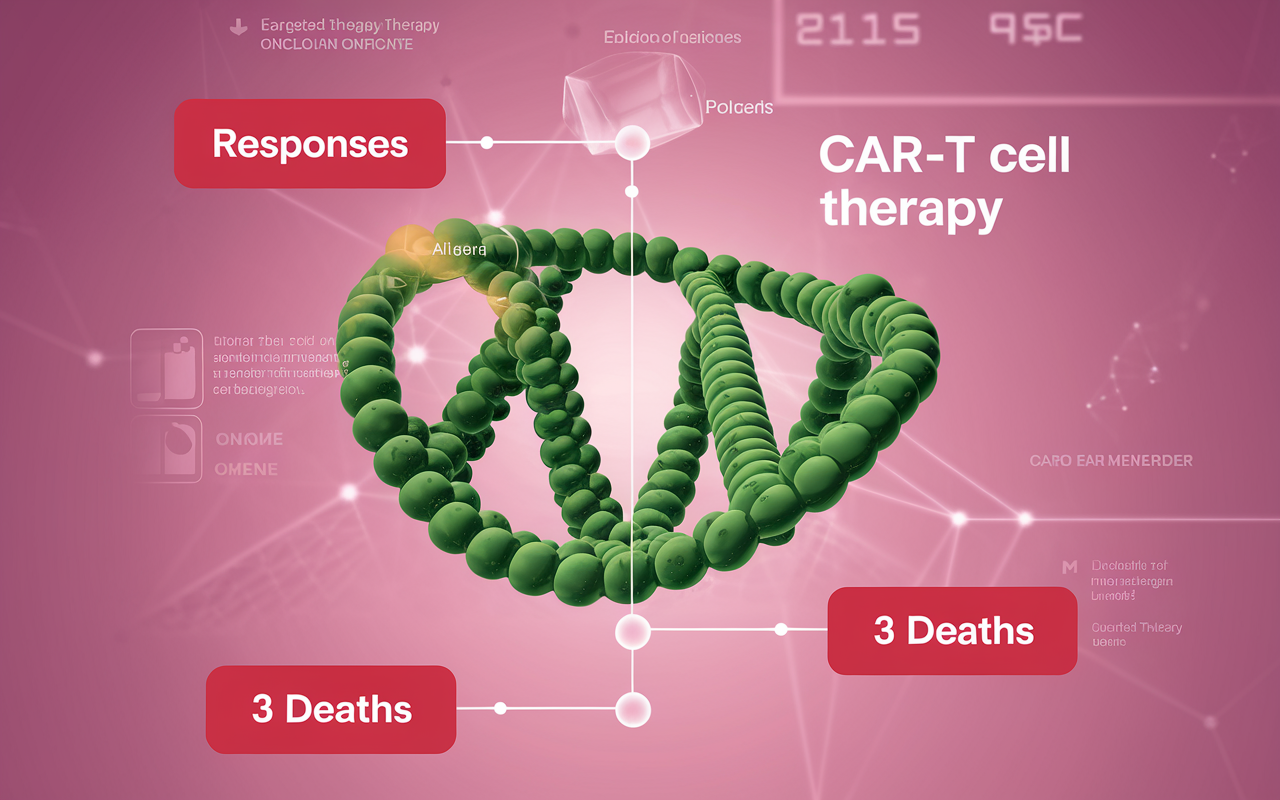Hello BioPharmaPulse Enthusiasts
Today, we're diving into a groundbreaking gene therapy that's poised to reshape cancer treatment as we know it. Join us as we explore the innovation that's bringing new hope to patients worldwide.
What's in this issue:
- 🚀 Unveiling a promising off-the-shelf CAR-T therapy for solid tumors
- 🧬 Discovering how specific bacteria drive colon cancer
- 🔄 Biotech companies pivoting strategies in the face of new challenges
- 💡 Demystifying gene therapy and its impact on cancer treatment
Quote of the Day
"Innovation is the calling card of the future." - Anna Eshoo
Latest Developments
🚀 Allogene's Off-the-Shelf CAR-T Shows Promise Amid Challenges (5 minute read)

Rundown: Allogene Therapeutics has reported encouraging results from a phase 1 trial of their off-the-shelf CAR-T therapy targeting solid tumors. While the therapy showed potential with patient responses, the trial faced setbacks with three patient deaths.
Keypoints
- ⚕️ The therapy targets DLL3, a protein commonly found in solid tumors.
- 🧬 Patients exhibited tumor shrinkage and clinical responses.
- ⚠️ Three fatalities occurred, potentially linked to the treatment.
- 🔬 Represents advancement in CAR-T applications beyond blood cancers.
Why it matters: This marks a significant step toward making CAR-T cell therapy more accessible and effective against solid tumors. Despite challenges, the progress offers hope for new cancer treatments.
🧬 Scientists Uncover How Specific E. coli Drive Colon Cancer (2 minute read)

Rundown: Researchers have discovered the mechanism by which certain E. coli bacteria contribute to colon cancer. These bacteria bind to intestinal cells and release a toxin that damages DNA.
Keypoints
- 🦠 Specific E. coli strains release colibactin, a DNA-damaging toxin.
- 🔗 The bacteria adhere to gut cells, leading to increased cancer risk.
- 💡 Provides insight for potential preventive strategies.
- 🩺 Opens avenues for new therapeutics targeting harmful bacteria.
Why it matters: Understanding this process is crucial for developing interventions that could reduce colon cancer risk by targeting and modifying the gut microbiome.
🔄 Nkarta Shifts Focus to Autoimmune Diseases (1 minute read)

Rundown: Nkarta is redirecting its efforts from cancer treatments to autoimmune diseases by discontinuing its lymphoma program for the CAR NK candidate.
Keypoints
- 🧪 Halting development of NKX019 in non-Hodgkin lymphoma.
- 🎯 Focusing on autoimmune applications of CAR NK technology.
- 🚚 Reflects strategic realignment amid industry shifts.
- 🌐 Potential to address unmet needs in autoimmune disorders.
Why it matters: This pivot underscores the flexibility of biotech innovation, as companies adapt to emerging opportunities to address pressing health challenges.
Question of the Day
🤔 How optimistic are you about gene therapy revolutionizing cancer treatment?
Trending
💉 Daiichi Sankyo Partners with Alteogen on Subcutaneous Enhertu
- Aiming to enhance patient experience with a subcutaneous version of the cancer drug Enhertu in a deal worth up to $300 million.
🏥 GSK Exits Trade Group BIO for 2025
- GSK announces departure from the Biotechnology Innovation Organization, signaling changes in industry collaborations.
🚫 FDA Proposes Ban on Key Ingredient in OTC Decongestants
- The FDA moves to remove phenylephrine from over-the-counter oral decongestants due to questions about its effectiveness.
Industry Insight
🧪 Demystifying Gene Therapy: Transforming Cancer Treatment
Gene therapy is ushering in a new era by targeting diseases at the genetic level. But what does this mean for cancer treatment?
Gene therapy involves modifying or introducing genes into a patient's cells to fight or prevent disease. In cancer, this can reprogram immune cells to better recognize and attack cancer cells.
By leveraging our genetic makeup, gene therapies offer the promise of personalized treatments that are more effective and potentially have fewer side effects than traditional therapies.
Quick Hits
📰 BenevolentAI Co-founder Returns with Rescue Plan (1 minute read)
- The co-founder steps back in to steer the AI-driven drug developer towards a sustainable path forward.
📉 Eisai Slashes Leqembi Sales Forecast by Almost $100M (1 minute read)
- Eisai reduces expectations for its Alzheimer's drug Leqembi amid slower uptake.
💊 Tezspire Shows Success in Chronic Rhinosinusitis (2 minute read)
- Amgen and AstraZeneca report positive results for Tezspire in treating nasal polyps associated with chronic rhinosinusitis.
⚠️ FDA Blocks Chinese API Manufacturer (1 minute read)
- Regulatory concerns lead to an import block of a Chinese active pharmaceutical ingredient manufacturer by the FDA.
🔬 AlloVir Merges into Eye Disease Biotech (1 minute read)
- AlloVir finds a new direction by merging with Kalaris Therapeutics, focusing on eye diseases.
Wrap Up
Thank you for joining us on this journey through the latest breakthroughs in biopharmaceutical innovation. The advances in gene therapy bring us closer to a future where cancer treatment is more effective and personalized.
We appreciate your dedication to staying informed. If you found today's insights valuable, consider sharing BioPharmaPulse with your colleagues and friends.
Until next time, stay curious and keep exploring.
Warm regards,
Elliot Reeves | BioPharmaPulse
😊 How did you like today's email?
- 😀 Loved it
- 🙂 It was OK
- 😕 Could be better
